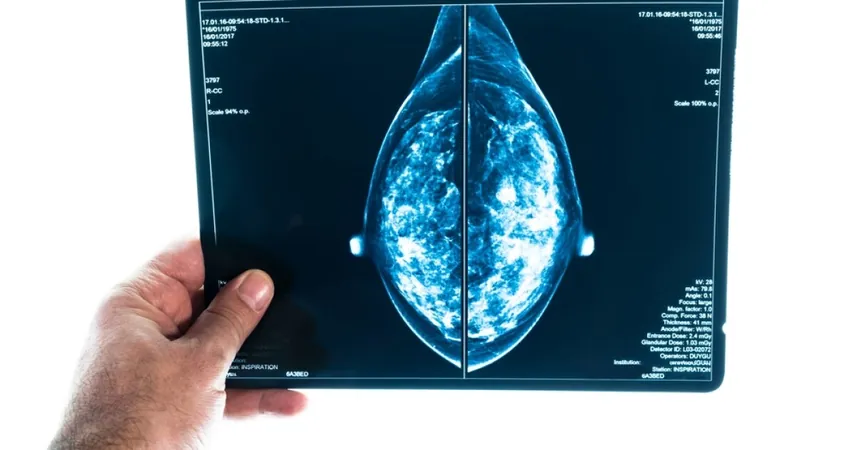
Alarming Surge in Breast Cancer Among Younger Women: What You Need to Know!
2024-10-14
Author: Jacob
Breast cancer has long been associated with older women, predominantly affecting those over fifty. However, a shocking new study conducted by the American Cancer Society has revealed a disturbing trend: a significant increase in breast cancer cases among women under fifty. This revelation is raising alarms among healthcare professionals and prompting a national conversation about women’s health.
Dr. Gloria Delgado, a seasoned oncologist with Parkland Health and UT Southwestern Medical Center, discussed the alarming findings in a recent interview. She highlighted several contributing factors to this increase, notably lifestyle changes and societal trends. With the rising rates of obesity, increased alcohol consumption, and the trend of delaying childbirth, younger women are now facing a higher risk of breast cancer than ever before.
One critical point raised by Dr. Delgado is the role of estrogen in this increasing trend. Higher estrogen levels, often linked to obesity and lifestyle, may contribute to the development of breast cancer cells. But it’s not just about hormones; enhanced treatment and early detection have improved outcomes for many, yet the rising incidence of breast cancer signifies more than just improved diagnostics.
When comparing breast cancer in younger women with that in older women, the results are concerning. Breast cancer diagnosed in younger women tends to be more aggressive. However, with advancements in treatment, early detection still offers a hopeful prognosis, with survival rates in the 80s and 90s when diagnosed early. Conversely, late-stage diagnoses lead to more significant challenges in treatment and poorer outcomes.
So, what can be done to combat the rising numbers of breast cancer among younger women? Experts emphasize preventive measures based on known risk factors. Maintaining a healthy weight through a balanced diet rich in fruits, vegetables, and proteins, while limiting fried and starchy foods, can help reduce breast cancer risk. Additionally, minimizing alcohol intake is crucial, as excessive drinking can lead to liver issues and elevated estrogen levels.
Interestingly, delaying childbirth until after the age of 35 has been shown to increase breast cancer risk, but researchers suggest that breastfeeding can serve as a protective factor. Women who breastfeed for at least three months may drastically reduce their risk, a message that underscores the importance of maternal health education.
Self-exams and awareness of breast health are paramount. Women are encouraged to closely monitor their bodies and communicate any changes to their healthcare providers promptly. Establishing a trusted relationship with a primary care physician or obstetrician can facilitate ongoing monitoring and help catch potential issues early.
Adhering to recommended screening guidelines, beginning at age 40 or earlier for those at higher risk, is critical. Regular screenings can lead to earlier diagnoses, which significantly improve treatment success rates.
This urgent topic calls for immediate attention and action. As the medical community grapples with this unsettling trend, women of all ages must prioritize their health and stay informed. Will the rising rates of breast cancer among younger women prompt a cultural shift in healthcare awareness? Only time will tell. Stay vigilant, stay informed, and take charge of your health!









 Brasil (PT)
Brasil (PT)
 Canada (EN)
Canada (EN)
 Chile (ES)
Chile (ES)
 España (ES)
España (ES)
 France (FR)
France (FR)
 Hong Kong (EN)
Hong Kong (EN)
 Italia (IT)
Italia (IT)
 日本 (JA)
日本 (JA)
 Magyarország (HU)
Magyarország (HU)
 Norge (NO)
Norge (NO)
 Polska (PL)
Polska (PL)
 Schweiz (DE)
Schweiz (DE)
 Singapore (EN)
Singapore (EN)
 Sverige (SV)
Sverige (SV)
 Suomi (FI)
Suomi (FI)
 Türkiye (TR)
Türkiye (TR)